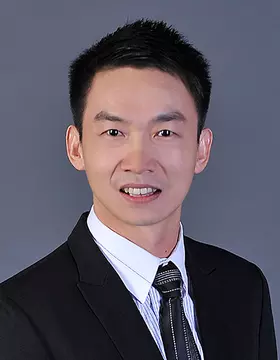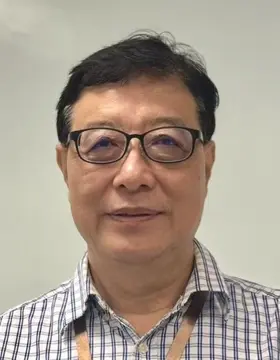
About Course
With the growing emphasis on automation and productivity across sectors such as manufacturing, robotics, and smart mobility, the ability to design and implement responsive control systems is becoming increasingly vital.
Whether in autonomous vehicles, industrial automation, or smart devices, control modules form the backbone of intelligent systems. This specialised micro-credential empowers learners to understand and influence these systems by equipping them with the tools to analyse, model, and control dynamic behaviour in real-world applications.
Learners eager to build a strong foundation in system modelling, control, and embedded implementation will begin by exploring the working principles of sensors and how both continuous-time and discrete-time signals are processed. Learners will then progress to modelling physical systems and designing closed-loop controllers to meet specific performance objectives.
The final phase focuses on embedded systems, where learners will integrate sensors and actuators into a working prototype and implement remote monitoring and control using an Internet of Things (IoT) framework. By the end of the programme, learners will be able to demonstrate the full cycle of embedded systems integration — from sensing and control to real-time deployment.
Combining online and in-person delivery, the micro-credential features hands-on learning activities, including MATLAB simulations, controller design, and embedded programming using the self-balancing robot problem as a demonstrator platform.
This integrative approach ensures that learners not only understand the principles behind sensing and actuation but also gain the confidence to apply them in real-world scenarios. The micro-credential also lays a strong foundation for future self-directed learning in advanced topics such as robotics, AI-driven control, and cyber-physical systems.
This micro-credential is part of the CSM Pathway in Electrical and Electronic Engineering.
Who Should Attend
Assumed Prior Knowledge
Learning Outcomes
This micro-credential is predominantly delivered through a competency-based education (CBE) approach where learners acquire and demonstrate mastery of knowledge and skills that are directly relevant to job functions. This prepares them to be industry-ready where they can apply their newly acquired competencies to their work.
List of Competency Units
| Code | Competency Unit Title | Credits |
|---|---|---|
| ENG2202C | Sensors and Signal Processing | 6 |
| ENG3204C | Control Systems | 6 |
| ENG3205C | Embedded Systems | 6 |
The above are competency units that constitute this micro-credential. Upon completion of the micro-credential, you will be able to:
- Explain the characteristics and limitations of common motion sensors (e.g., accelerometers, gyroscopes)
- Design and simulate digital filters (e.g., low-pass) to reduce noise and enhance signal quality
- Develop motion prediction algorithms using MATLAB to estimate orientation or velocity from sensor data
- Construct mathematical models of dynamic systems using transfer functions and state-space representations
- Design and tune feedback controllers (e.g., PID) to meet performance criteria such as stability, responsiveness, and robustness
- Validate control strategies through MATLAB simulations and interpret system responses under various conditions
- Program microcontrollers to interface with sensors and actuators in real time
- Integrate filtering and control algorithms into embedded code for deployment on physical hardware
- Demonstrate a working prototype that performs real-time balancing and responds to environmental changes

Coaching for Success
During the course, you will have access to a team of qualified success coaches who can work with you on learning strategies or to develop a personalised learning plan. Through the success coaches, you can gain access to a wide range of resources and support services, and be empowered with the necessary tools to navigate your learning journey successfully.
Teaching Team

Kiew Choon Meng
Assistant Professor/Prog Leader, Engineering, Singapore Institute of Technology

Dr. Zheng Jianxin
Associate Professor / Prog Leader, Engineering, Singapore Institute of Technology

Cherine Siew Eng Ng
Lead Professional Officer, Singapore Institute of Technology

Dr. Yang Zhizong
Programme Manager for Robotics and Control, Singapore Polytechnic
Course Details
Schedule
| Week | Learning Activity | Delivery and Time |
|---|---|---|
| TBC | Self-directed learning (pre-recorded videos) | Asynchronous online |
| TBC | In-person lecture/training | In-person TBC |
| TBC | Weekly consultation | Synchronous online |
| TBC | Assessments | TBC |
Certificate and Assessment
A Specialist Certificate in Sensing and Actuation will be issued to learners who:
- Attend at least 75% of the course and
- Undertake and pass all credit bearing assessments
Assessment Plan
- The learner will undertake a combination of written tests and projects
Fee Structure
The full fee for this course is S$10,006.20.
| Category | After SF Funding |
|---|---|
| Singapore Citizen (Below 40) | S$3,001.86 |
| Singapore Citizen (40 & Above) | S$1,165.86 |
| Singapore PR / LTVP+ Holder | S$3,001.86 |
| Non-Singapore Citizen | S$10,006.20 (No Funding) |
Note:
- A one-time, non-refundable matriculation fee of $54.50 will be collected before course commencement.
- All fees above include GST. GST applies to individuals and Singapore-registered companies.
- Should you decide to convert to the degree pathway, you will be subject to SIT’s tuition fees and may qualify for the Ministry of Education (MOE) tuition grant, based on eligibility criteria set by MOE. Please note that the SkillsFuture subsidy will no longer be applicable once you convert to the degree pathway.
Course Runs
Learning Pathway

Earn Stackable Specialist Certificates
New Engineering Micro-credentials Launching Soon!
Exciting news! We are introducing new micro-credentials in Electrical and Electronic Engineering & Infrastructure and Systems Engineering. Be among the first to know by registering your interest today! Register now →